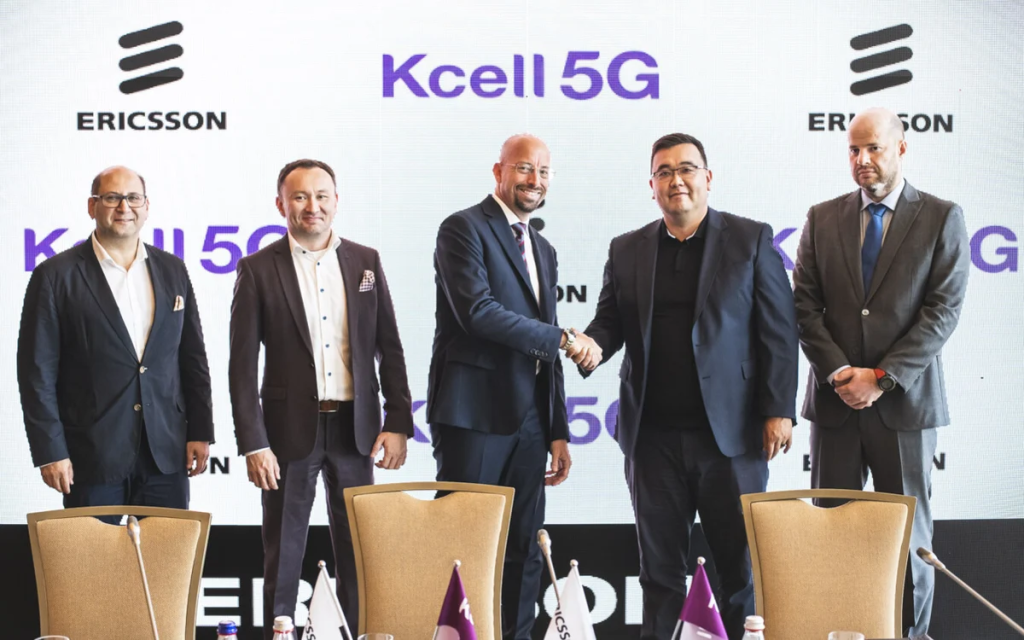Kcell and Ericsson Strengthen Partnership through 5G Agreement
After 25 years of successful cooperation, Kcell and Ericsson are pleased to announce an expanded partnership aimed at accelerating the widespread adoption and development of 5G technology and related services in Kazakhstan. This cooperation marks an important step towards the era of 5G connectivity and its transformative potential for the industry and consumers.
The partnership envisions a roadmap spanning 2023 to 2030, during which the two companies will work together to promote innovation, drive economic growth, and strengthen the country’s technological infrastructure.
Both sides have reached an agreement to deploy Ericsson’s state-of-the-art 5G technology on at least 50% of Kazakhstan’s territory. The deployment will cover key areas including Almaty, Chimkent, and several other areas. This cooperation demonstrates the commitment of the two companies to ensure that the benefits of 5G reach the majority of the population, thereby promoting the growth of urban and rural connectivity.

One innovative aspect of this collaboration is the implementation of a single RAN method for 5G deployment. This approach involves seamlessly integrating 5G into existing 2G, 3G, and 4G infrastructure, maximizing the effective utilization of network resources, and simplifying the transition to new technologies. This consistent deployment strategy emphasizes the commitment of partners to smoothly integrate technology development.
As Akhat Uzbekov, Chairman of the Kcell Management Committee, pointed out, unlike previous generations of communication technologies, 5G not only has the potential to improve various characteristics of wireless communication, including speed, latency, reliability, device “density” and power consumption, but also has the potential to create new services and applications such as virtual and augmented reality (AR/VR), industrial Internet of Things (IIoT), and real-time robot control, unmanned vehicles and drones.
In addition, 5G can also be used for fixed wireless access (FWA) in areas where internet cables cannot be laid due to complex terrain, and can be used to replace or supplement wired “last mile” for residential and commercial customers. Fixed wireless access predates 5G, but its improved speed, radio performance, and wider bandwidth mean it is a more capable underlying architecture that can achieve digital transformation, including for enterprises.
Akhat Uzbekov, CEO of Kcell, stated: In addition, the transition to 5G has made it possible to create a series of technology platforms around which ecosystems are formed, and telecommunications operators become providers of platform services implemented by these technology platforms and provided to ecosystem partners. Operators can create and provide digital services themselves, which means they can become providers of terminal services as they are now, but it will be faster, richer, and more diverse than it is now Diversify the creation of these services. I believe that cooperation with Ericsson will enable us to achieve all of these opportunities in the most effective and seamless manner.”
Andrea Missori, head of Ericsson’s Southeast Mediterranean and Eurasian regions, stated: We are pleased to expand our partnership with Kcell as this marks an important milestone for Kazakhstan in the forefront of telecommunications innovation in the Eurasian region. We are building a future oriented network that not only provides excellent connectivity for Kcell customers, but also provides an innovation platform to help industry transformation, pave the way for a more interconnected digital society, and promote economic growth and social progress.”
